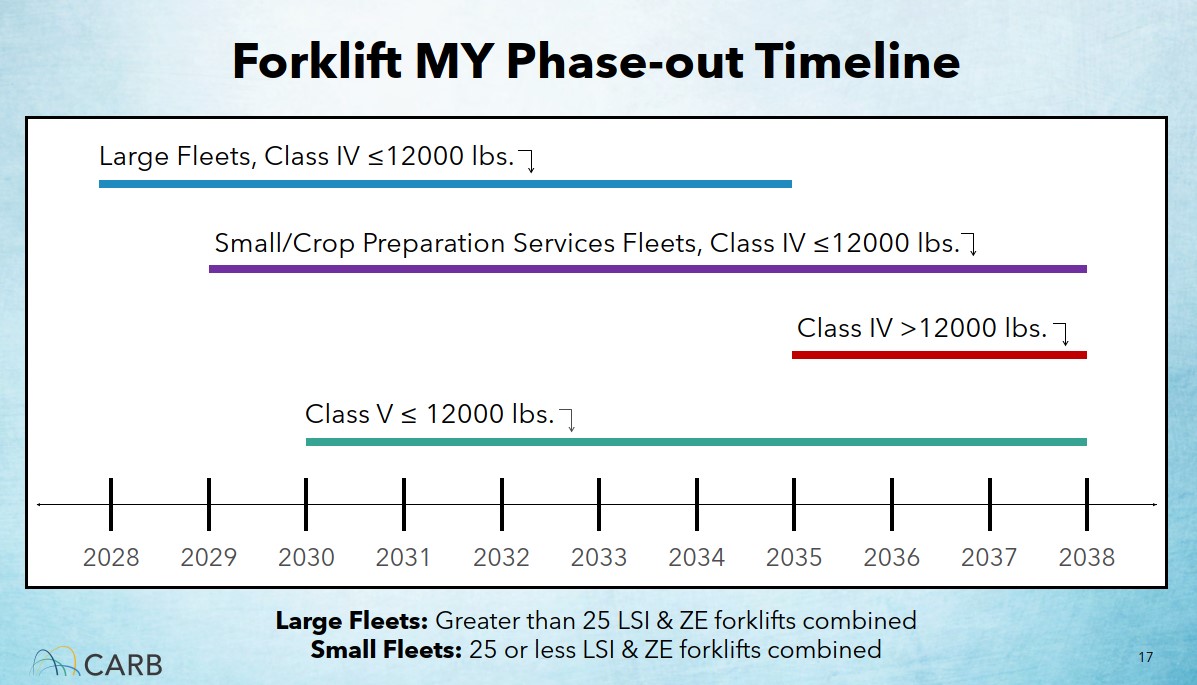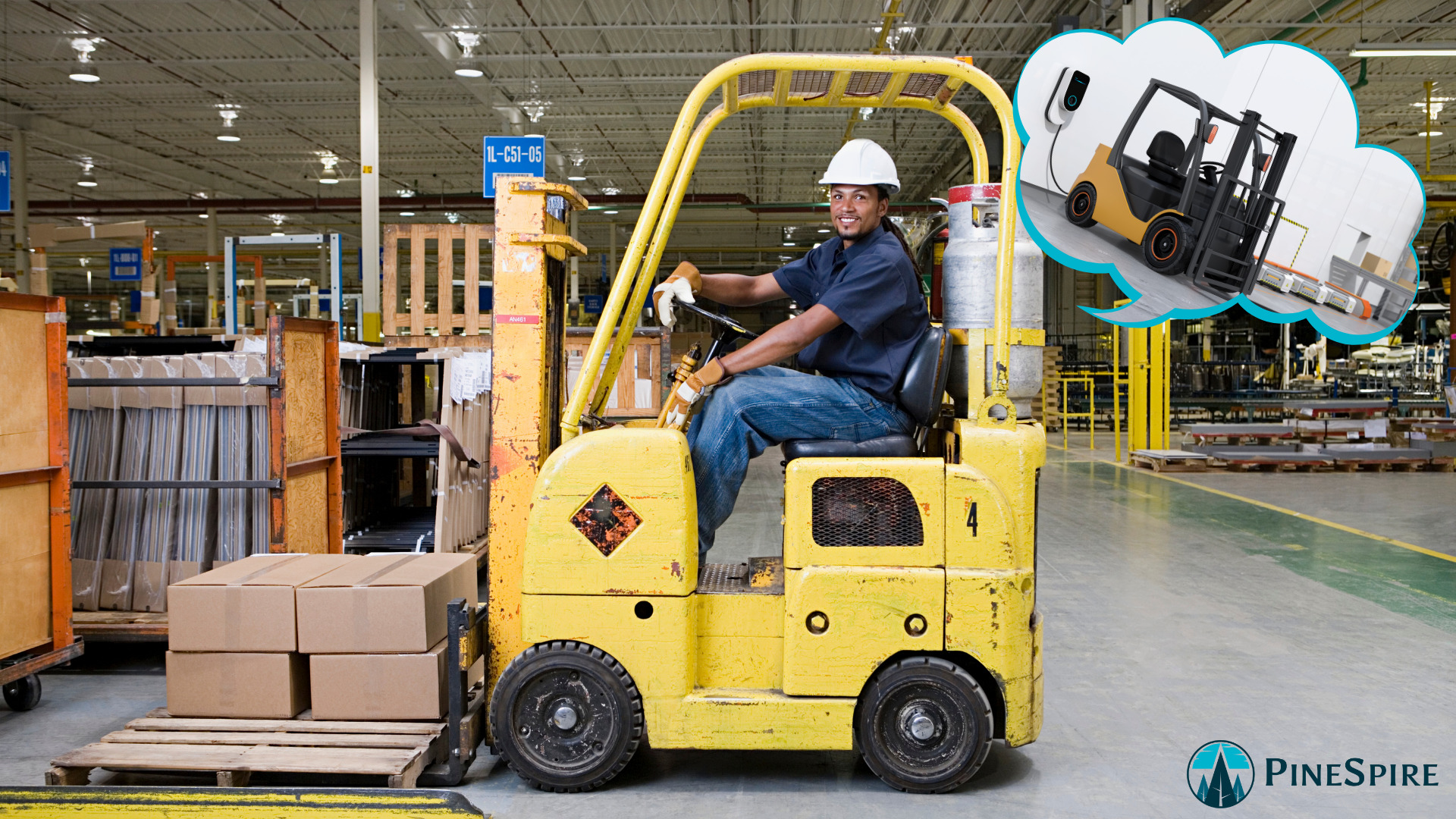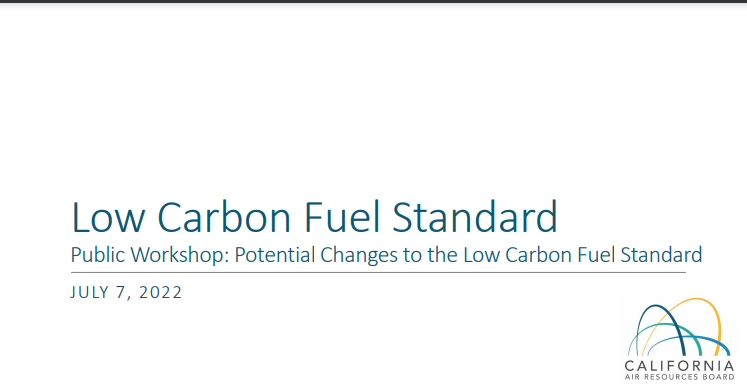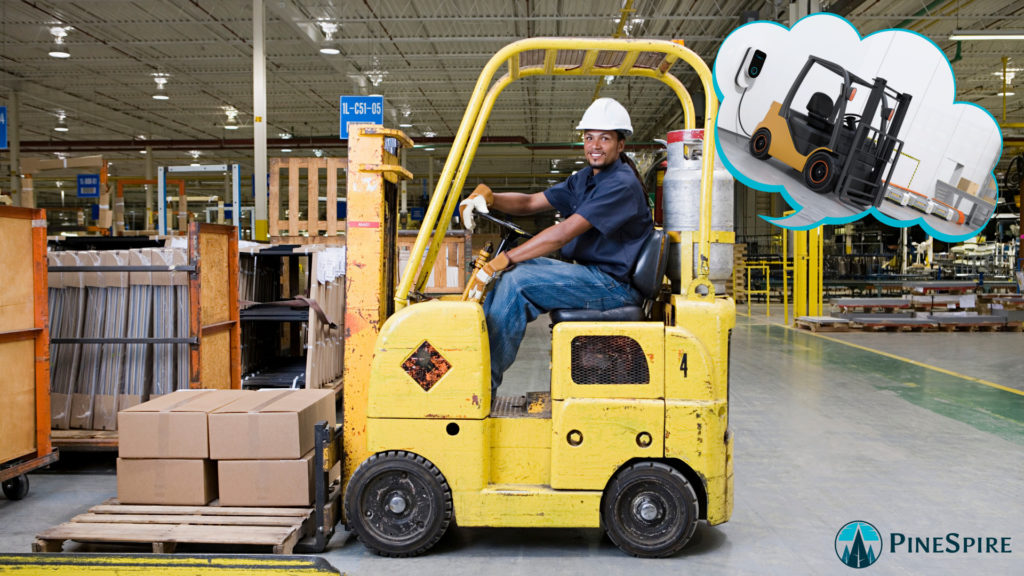The California Air Resources Board (CARB) has unanimously adopted the Zero Emission Forklift Regulation, following extensive public comment and questions from CARB Board members. This landmark regulation aims to improve public health and air quality by transitioning approximately 90,000 forklifts from gasoline or propane to zero-emission alternatives, such as electric, by 2038.
The regulation mandates that large-spark ignition forklifts be phased out by 2038, with the transition timeline illustrated below:
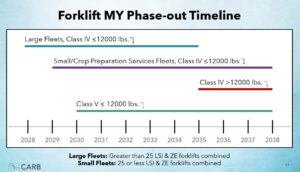
Key points of the regulation include:
- Forklift Exceptions: Certain forklifts are exempt, including those with low usage, over 12,000 lbs capacity, and diesel-powered units.
- Reporting Requirements: All entities must begin reporting compliance starting in 2026.
- Phase-Out Caps: There are percentage caps on the annual phase-out requirements.
- Rental Fleet Impacts: The regulation affects rental fleets, particularly the phasing out of seasonal propane rentals.
- New Sales: The sale of new propane forklifts will be phased out, starting in 2026.
- Utility Delays: Documentation is required for any delays in providing electrical service upgrades.
Based on discussions with leading forklift dealers, PineSpire notes that the regulation will impact the supply of large-spark ignition forklifts being moved out of California and increase the demand for electric lifts within the state. This ruling is expected to have nationwide significance.
For more information and a detailed phase-out requirement schedule, please contact PineSpire.

